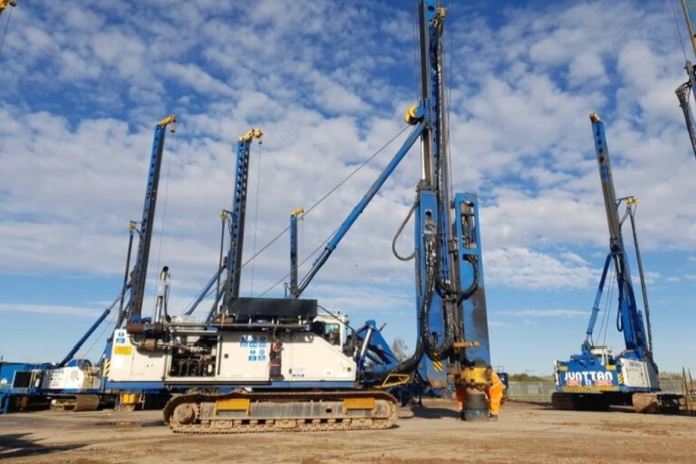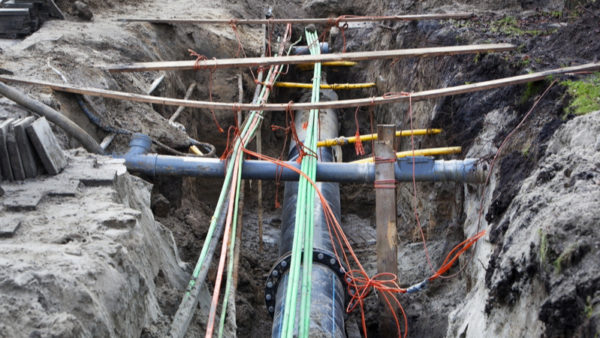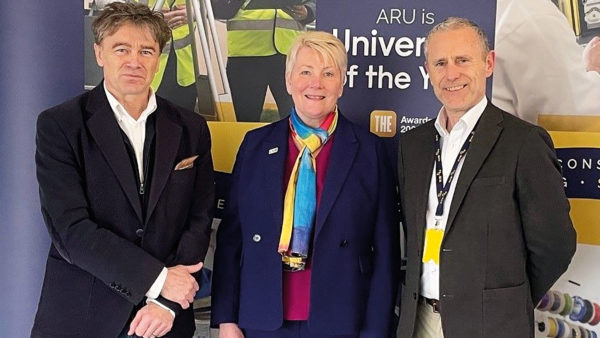
Balfour Beatty has successfully retrofitted a £1.5m piling rig in use on HS2 to bring it in line with the latest EU Stage V emissions requirement.
The six-month pilot of the retrofit solution was carried out by UK company Eminox on a Balfour Beatty-owned Junttan PM20, which was rated at Stage IIIA.
In what was claimed to be the first EU Stage V equivalent retrofit solution in Europe, the machine has been tested by Imperial College London (Centre for Low Emission Construction) and Emissions Analytics and has been validated by the Energy Savings Trust.
Unlike on-road exhaust emissions reduction retrofit technologies, which typically use compressed air from the existing system, the new technology removes particulates, hydrocarbons, carbon monoxide and nitrous oxide emissions using new “airless dosing” technology.
HS2 said that the project would provide certainty for the sector and that the retrofitting solution can now be made available industry wide, leading to cleaner air on construction sites.
HS2 has set strict non-road mobile machinery (NRMM) emissions requirements, with all plant needing to meet at least EU Stage IV requirements from 2022.
HS2 said the retrofit meant that plant on the project can be successfully retrofitted to meet HS2’s 2022 NRMM criteria at a fraction of the cost of purchasing new equipment. It said the development could potentially lead to a £300m saving across the project.
A second pilot is currently underway on the larger Bauer BG30 403kW rig, to test whether larger machines within the 350kW to 550kW range can also be retrofitted.
HS2’s director of environment Peter Miller said: “Working in partnership with Imperial College London and our contractors CSJV and BBV, this ground-breaking innovation has allowed us to better understand plant emissions on site, create an NRMM plan to reduce worker exposure and community impacts, and develop technology to further reduce emissions in and around our construction sites.”
Eminox’s director of retrofit & aftermarket, Carlos Vicente said: “At Eminox we’re focused on helping to reduce emissions across a wide range of sectors and working on this pioneering HS2 project has enabled us to extend our leading retrofit technology from on road applications to construction equipment. Being first to market with Energy Savings Trust accreditation for non-road mobile machinery demonstrates the project’s innovation – it enables the construction industry to have new opportunities for cost-effectively reducing emissions to the lowest possible level and improving air quality across the industry.”
Bekir Andrews, group head of sustainability & reporting, Balfour Beatty said: “Reducing emissions from plant on construction sites is a key challenge that our sector faces – it is something that we are particularly passionate about at Balfour Beatty, having recently launched our Sustainability Strategy – Building New Futures. Whilst engine standards are improving and new electric, hybrid and hydrogen solutions are starting to enter the market, there is a lot of plant and machinery that still runs on IIIA and IIIB engines. We are immensely pleased to have worked alongside HS2, Eminox and the Centre for Low Emissions Construction to develop a practical solution to improve emissions from construction sites and offer a solution for our sector.”









